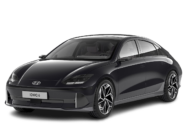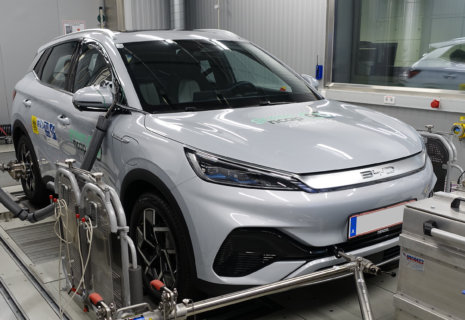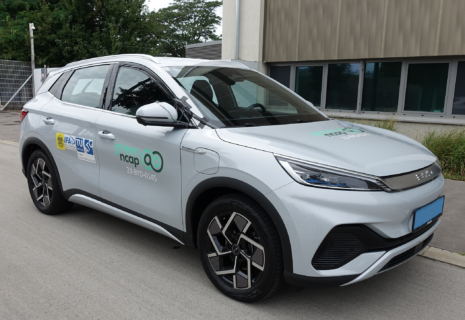BYD ATTO 3 M2F1C 60 kWh electric FWD automatic
2023
97%
10.0
10
Clean Air Index
9.5
10
Energy Efficiency Index
9.7
10
Greenhouse Gas Index
| Laboratory Tests | NMHC | NOX | NH3 | CO | PN | |
|---|---|---|---|---|---|---|
| 10.010 | Cold Test | |||||
| 10.010 | Warm Test | |||||
| 10.010 | Highway | |||||
| 10.010 | Cold Ambient Test | |||||
| Road Test | ||||||
| 10.010 | On-Road Drive | |||||
| 5.05 | On-Road Short Trip | |||||
| 8.08 | On-Road Heavy Load | |||||
| 5.05 | On-Road Light Load | |||||
| 2.02 | Congestion | |||||
| Laboratory Tests | Energy | |||
|---|---|---|---|---|
| 10.010 | Cold Test | 18.2kWh100 km | ||
| 10.010 | Warm Test | 18.0kWh100 km | ||
| 8.810 | Highway | 28.1kWh100 km | ||
| 9.310 | Cold Ambient Test | 25.1kWh100 km | ||
| Consumption | Driving Range | |||
| Average | 21.4kWh100 km | 333km | ||
| Worst-Case | 28.1kWh100 km | 244km | ||
| Greenhouse Gases | CO2 | N2O | CH4 | |
|---|---|---|---|---|
| 10.010 | Cold Test | |||
| 10.010 | Warm Test | |||
| 9.310 | Highway | |||
| 9.810 | Cold Ambient Test |
Specifications
- Tested Car LGXCE4CB0N213XXXX
- Publication Date 09 2023
- Vehicle Class Small Family Car
- Emissions Class Euro 6 AX
- Tyres 235/50R18 V XL
- Mass 1,750 kg
- System Power/Torque 150 kW/310 Nm
- Declared Battery Capacity 60.5 kWh
- Declared Driving Range Overall 420 km City 565 km
- Declared Consumption 16 kWh/100 km
- Heating Concept Waste heat + PTC + Heat pump





























































































































































Our verdict
The Chinese brand BYD is a newcomer to the European market and arrives with a range of attractive electric models. Tested here is the ATTO 3 – a compact SUV with a maximum power of 150 kW and a declared usable battery capacity of 60 kWh. The mass of the empty vehicle is 1,750 kg. The measured test consumption values are creditable and let the vehicle compete with efficient electric vehicles from other manufacturers. A positive aspects worth mentioning is the relatively low energy demand at cold ambient conditions – in the -7°C lab test, the ATTO 3 needed only 25.1 kWh/100 km, which is an excellent result and proves a well-designed heating system, utilising different sources of waste heat. At the battery capacity test the vehicle was charged with 11 kW charging power. With 59.3 kWh, the measured usable battery capacity matches closely the declared figure of 60 kWh. The full battery recharge takes 68.4 kWh from the electricity grid, which results in a rather moderate grid-to-battery output efficiency of 87 %. Improving the charging/discharging behaviour of the charger and the battery would boost up the results of the vehicle even higher. Overall, the BYD ATTO 3 finishes with an Average Score of 97%, easily collects all 5 Green Stars and challenges the popular EV brands in the European market.